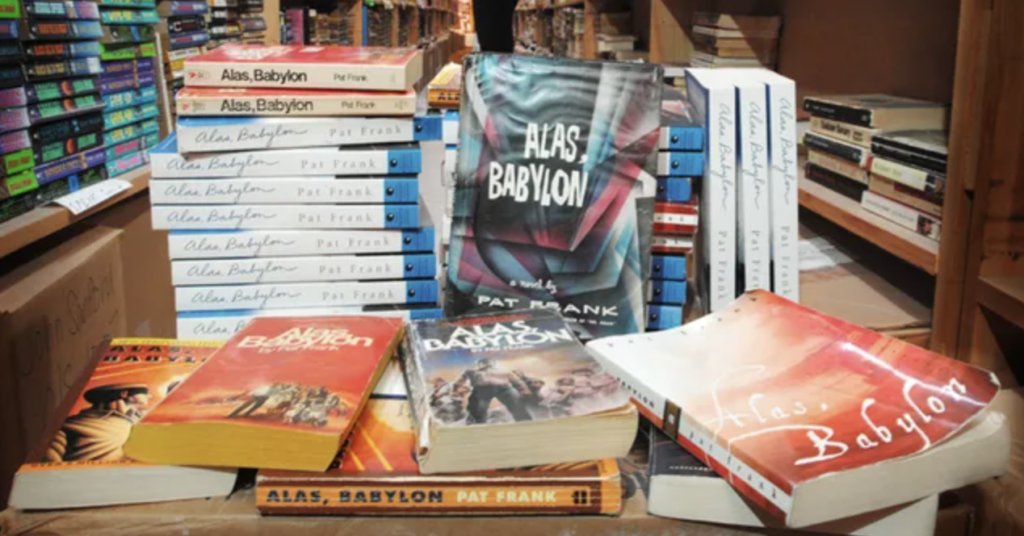Do you remember the first book you read as a kid that wasn’t written for kids?
If you go to the trouble to follow my writing on this site, the odds are pretty good that you consider reading as one of the more rewarding things you do.
You probably started young. I don’t know of too many people who didn’t enjoy reading as a child who later acquired the habit as an adult. As a child of the 1950s, I loved reading and read a lot, starting with things like the Hardy Boys and Tom Swift series and moving on to Clair Bee’s books about Chip Hilton.
When I visited my grandparents in their small north central Ohio town in the summertime, I would go to the library and get three or four books every other day. That was where I discovered Duane Decker’s series of baseball books about the Blue Sox (a stand-in for the Yankees).
When we went to Columbus from our home north of Dayton, we always stopped at a used bookstore, and it was there I discovered remainders, books with the covers torn off that generally sold for a nickel each.
I probably read several hundred books a year, and I think I was 10 when I started reading books that weren’t aimed at an audience of children.
There are two in particular that meant a lot to me, and I’m not 100 percent sure which one came first, although one was published two years before the other. I’ll mention first the one that was probably second, “Exodus” by Leon Uris.
I think that was the first book I read of an epic nature, a book focusing on the years after World War II and the founding of Israel. I liked it a lot, and I think over the next 15 years or so, I read most of Uris’s novels.
But. the one I remember most was by a Florida reporter named Pat Frank and was called “Alas, Babylon.” It came out in 1960, the summer when I was 10 years old. It was about a nuclear war and its aftermath.
It wasn’t the big deal “On the Beach” had been. Nevil Shute’s book had been a best seller in 1957 and had been a big 1959 film starring Gregory Peck and Ava Gardner. But “Alas, Babylon” was a story of survivors trying to get on with their lives, while Shute’s book was essentially about the end of the world.
“On the Beach” said nuclear war couldn’t be survived.
Growing up when I did, we were the first generation of children who lived under the shadow of nuclear war. Living in southwestern Ohio, I don’t recall ever doing the “get under your desk and kiss your ass goodbye” drills, but we lived about five miles from one of the major military targets — Wright-Patterson Air Force Base.
I remember October 1962 and the Cuban Missile Crisis. My mother packed all sorts of canned goods into the back of our car in case we had to bug out for the territories.
By then it was two years since I had read “Alas, Babylon.”
I have probably read it a dozen times over the last 60 years or so, and I have listed to the audiobook several times in the last few years. It was never made into a movie, although a condensed version did appear as an episode on the weekly television drama “Playhouse 90.”
Sadly, I’ve never been able to find a video of it.
Pat Frank wrote other books, although nothing to compare to “Alas, Babylon” in hers of success. Heck, it’s taught in high school English classes. I don’t know that I could ever call one book my favorite ever, but there aren’t many that I’ve loved at age 10 and at age 72. This one would be high on the list.
The ending is outstanding. After protagonist Randy Bragg learns the result of the war, which of course hardly matters. Winners and losers both suffer. As the military helicopter leaves …
“The engine started and Randy turned away to face the thousand-year night.”

